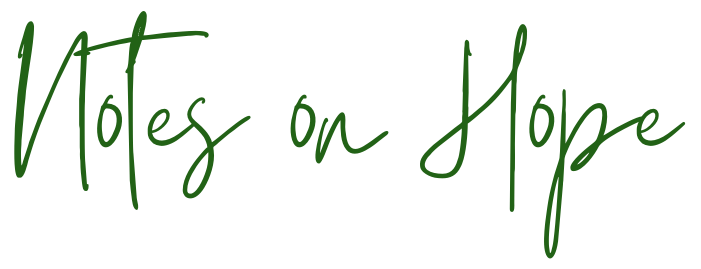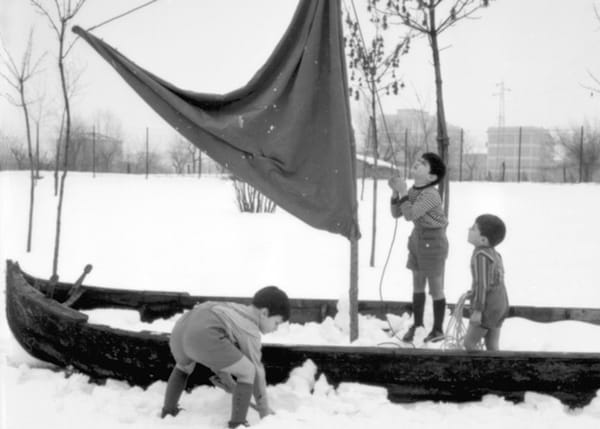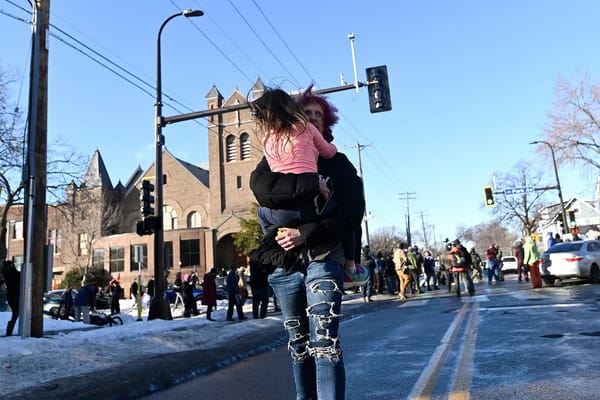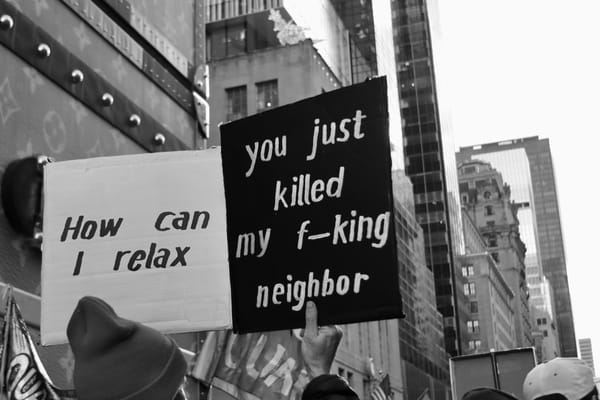Holding Onto Empathy When We're Angry and Afraid
And why we can't treat an empathy deficit with empathy austerity
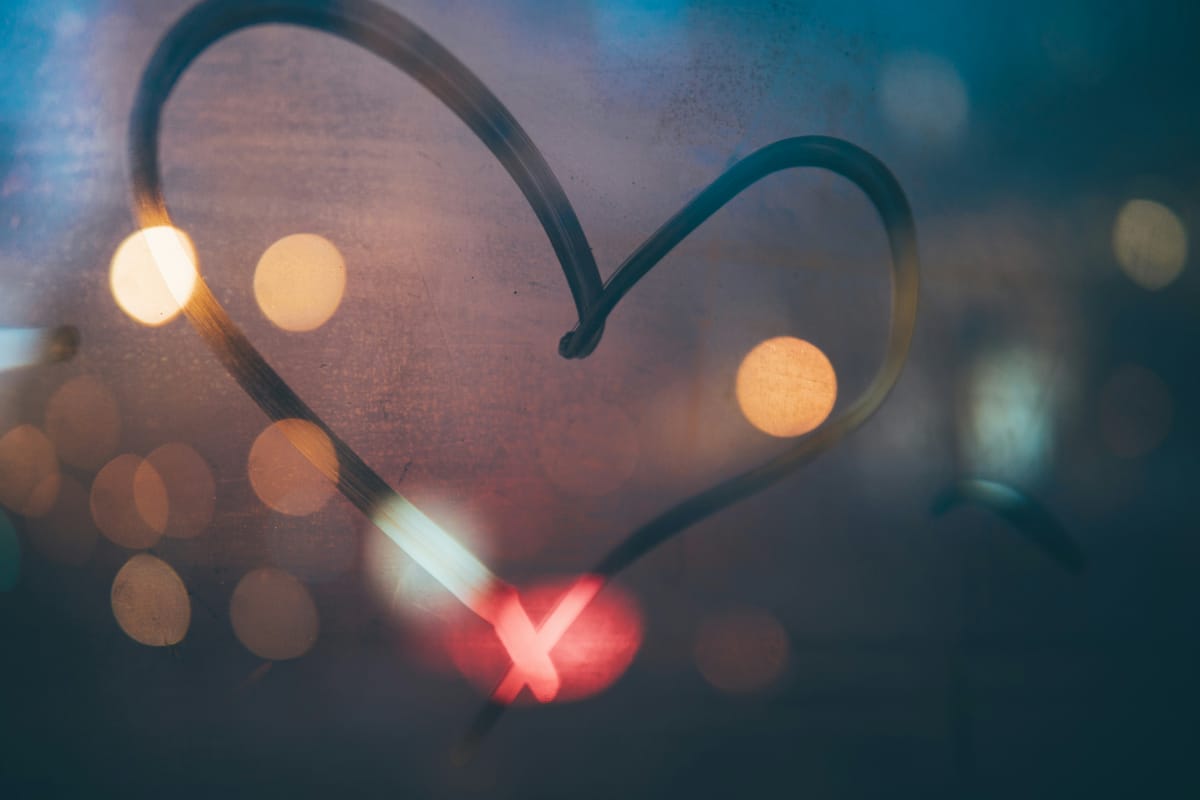
“What a mess we made;
trying to prove
we don’t need
each other.”
~Ginnie Bale
Someone I respect a lot wrote recently that the scarcity mindset, which often seems to overtake our decision making, particularly in the U.S., requires that we abandon attempts to change hearts and minds through empathy and instead focus solely on speaking to what impacts people’s own, individual lives—specifically on what is being taken away from them. It is no surprise that a scarcity mindset is common in American culture. It is a natural outgrowth of both capitalism concentrating wealth and resources and the rugged individualism mythology that so often colors our view of events and of each other. However, responding to this tendency toward self-focus by rejecting the power of empathy is, I think, its own manifestation of a scarcity mindset and of the mythology of individualism. It is also ineffective, as the antidote to a scarcity mindset can’t be found by reinforcing the very constraints it imposes on our ability to see beyond ourselves.
I’ve spent more of my professional life researching and exploring empathy than any other topic in child development or culture broadly. So I had an instant visceral reaction to the suggestion that we strategically abandon the cultivation of empathy and its power to elicit change, that we essentially view empathy as a lost cause. I think this perspective is deeply misguided for reasons I will expand on below. But, perhaps ironically, the immediate reaction I had was actually one of empathy, because, in my experience, the underpinnings of this argument are almost always a combination of fear, anger, and overwhelm. Rejecting empathy as ineffective, weak, or impractical is, more often than not, an expression of our own despair and diminished faith in one another. We are currently watching callousness and cruelty unfold at breathless speed and scale. It is understandable that many of us would be feeling profoundly cynical about the human capacity for care.
I understand deeply and personally how terrifying it is to watch empathy unravel all around us and how bruising it can be to feel like our own stories of suffering and vulnerability are irrelevant, not only to those in positions of power, but to people all around us. I get it. I get the impulse to step away from empathy and, in particular, to step away from the belief that our stories have the power to spark recognition and soften the spirit of others.
I get it, and I think it is an impulse we have to guard against. Abandoning our belief in the possibility of others’ capacity for empathy deadens our own. It locks other people into positions of indifference where we might have nudged the door open and created space for understanding and care. And, most pragmatically, mobilizing resistance to cruelty by leveraging selfishness is ineffective.
One of the reasons that we are so frequently burned by our own faith in empathy and our efforts to elicit it in others, is that we oversimplify it. Empathy, much like hope, is often portrayed as a fluffy and simplistic ideal. But the development of empathy and its role in influencing behavior and moral decision making is complex and layered. Our capacity for empathy begins at birth, but it takes all of childhood (or perhaps more realistically, an entire lifetime) to translate that early instinct into consistently compassionate action. And, even as it develops, empathy is complicated to act upon, because people are complicated and their intentions and behaviors are often nuanced and contradictory. Our own experiences and emotions also naturally lead us to want to protect ourselves from connection and vulnerability at times. We are wired for empathy, and empathy is crucial to learning, moral decision making, and the collective good. But it is also fragile and fallible.

I have far more than one note worth of thoughts on this topic, so I’m sure I will return to it. But, for now, in this moment of rogue cruelty, when it is so tempting to curl ourselves into our own shells and view others with a mix of fear, rage, and disdain, there are a few things about empathy that I think are especially important to understand and keep front of mind.
First, as I noted above, empathy is extremely vulnerable to fear, anger, and overwhelm. This is true of those we seek to persuade to care, and it is true of our own capacity to empathize with those whom we seek to persuade. This does not mean that it is impossible for all of these emotions to exist alongside and even to fuel our empathy. But empathy is delicate and easily snuffed out by other powerful instincts, so we have to constantly attend to the spark of compassion and ensure that it is not being deprived of oxygen by these other strong feelings.
Second, prioritizing empathy and seeking to elicit compassion from others by sharing our own stories does not preclude speaking to their needs, experiences, and personal impact. Empathy is a two way street, and letting other people know that we see their vulnerabilities isn’t antithetical to their capacity to recognize ours. On the contrary, it is the gateway. People need to feel seen and heard in order to see and hear others. We can walk and chew gum at the same time, as the saying goes. We can talk to people about how their own lives are impacted and validate their fears, even as we share our stories and the stories of others, in hopes that this will prompt connection and compassion in return. Empathy is like a circuit. It requires reciprocity. We cannot demand compassion without also offering it.
Third, in addition to fear, anger, and overwhelm, research has shown that power and more specifically dominance often block empathy. As power is increasingly concentrated among the few at the expense of the many, it will become especially critical to distinguish between lack of compassion in those who hold positions of power and the resulting paralysis of empathy that can occur among the rest of us, who are justifiably frightened, angry, and exhausted.
There is little we as individuals can do to impact the empathy deficit that festers within the realm of extreme power. We are unlikely to soften the hearts of dictators and abusers or those in closest proximity to their authority. It is imperative, however, that we continue to believe in the capacity for empathy among the majority of ordinary individuals. Seeing another person as equally human and equally entitled to compassion is directly related to our own belief in their capacity to hold us in empathetic regard. Believing that other people, broadly, are incapable of empathy is the first step toward dehumanizing them, and this will only deepen the perils of a power-seeking scarcity mindset.
The catch-22 that we will need to constantly be wary of is our own tendency to allow the fear, rage, grief, and daily stress that has arisen, in part, from feeling abandoned by one another, to lead us to enact that same abandonment and further deepen the empathy gulf. When we harden ourselves in response to the perception that others are not capable of care, we create a self-fulfilling prophecy that only further distances us from each other and entrenches callousness as the norm.
As teachers know, when we believe in a child’s potential and consciously convey that belief to them, they are much more likely to rise to meet it than when we convey disappointment or dismissal. This is particularly crucial when children perform or behave poorly. It is in the aftermath of a child failing a test or pushing another child on the playground that it is most important for us to let them know we believe in their ability to do better. This is true for adults as well. When we convey a fixed mindset about human capacity—a belief that someone’s worst is all they are capable of—we calcify their ability to grow and change. This is its own form of dominance and reflects a lack of empathy on our part. On the other hand, when we convey faith in another person’s ability to change and grow, they are more likely to change and grow. And when we convey a faith in another person’s capacity to feel and care, they are more likely to feel and care.

I’m going to write more in the weeks to come on the “how” of all this, because it is hard. How do we hold our fear and our rage, which is often appropriate and justified, without sacrificing our capacity for empathy? How do we juggle the onslaught of information and the daily practical demands on our time and energy, all of which have the power to sap us of our care for others, without becoming numb? How do we continue to empathize with and expect empathy from people whose votes and voices often seem to reflect a lack of concern for our own suffering or the suffering of others? At what point does empathy morph into excusing abuse or become equivalent to self-harm? And how do we teach our children to lead empathetic, caring lives when we are afraid that their very survival might be at stake if we do not harden their armor? These are all vital questions that deserve their own space and time. For now, I want to name them in order to avoid furthering the perception that empathy is either easy or naive. I promise to come back to these questions.
For today though, I want to leave you with a few thoughts on why maintaining a commitment to empathy is so critical, especially in a moment when it is easy to feel that we need to thicken our skin and presume the most selfish impulses of those around us just to survive. Empathy is more essential now than ever, both to hold onto in ourselves and to cultivate in others, because it is the only way to build a better future. We won’t create a more just and caring world—which I believe we have an obligation to continue to insist is a possibility—by accepting selfishness as the only material available to us in shaping that world.
In her poem, “In Those Years,” Adrienne Rich warned,
“In those years, people will say, we lost track
of the meaning of we, of you
we found ourselves
reduced to I
and the whole thing became
silly, ironic, terrible:
we were trying to live a personal life
and yes, that was the only life
we could bear witness to
But the great dark birds of history screamed and plunged
into our personal weather
They were headed somewhere else but their beaks and pinions drove
along the shore, through the rags of fog
where we stood, saying I”
Insisting upon empathy is the only way we save ourselves from this dark fate. We must resist, with everything we have, the impulse to believe that all anyone is capable of is “I” and commit our whole hearts to saying “we” and “you” like a chorus that works itself into our minds until it becomes part of everything we do.
Additionally, as I’ve written previously, empathy is effective. Neurological research, evolution, and history all make this clear. We need to understand how empathy operates in order for this to be true, and I will return to this, along with the questions above in future notes. But, for now, remember that we need large-scale communal action to defeat authoritarian power, and we only come together in this way when we care about each other and about our collective future. This requires that we have the compassion to speak to the pains and fears of others, which is an enactment of our own empathy, and that we continue to believe it is possible for other people to be moved by suffering that is beyond the scope of their own experience. We have mobilized collectively in this way before, and I believe we can do it again. But, we can only do this if we refuse to harden our own hearts or give into the illusion that everyone else’s heart has already hardened.
Keep caring and keep urging others to care. It’s the only way out.
Wishing you care and the strength to keep caring,
Alicia
A few resources I found helpful & hopeful this week…
This conversation between Saeed Jones and Roxane Gay is full of wisdom and humor, and it is also a generous window into a caring friendship—something we all need to cultivate. It breathed life into my tired spirit, and I hope it will do the same for you.
Sometimes hope can be found in widening the scope of our view. Thinking about climate change, particularly as the protections and engines of progress are being stripped daily, can be overwhelming. But we’ve already made far more progress than we often realize!
Groups like Unlock Aid are working furiously to mitigate the damage of the freeze on USAID. These efforts won’t fill the gap, which is enormous and life threatening, but they are meaningful, and they are a reminder that many people still care and are acting on their care.
You can still help kids by buying cookies from them and buying books for them!
If you think someone else in your life might need some hope, please share. It’s always easier to hold onto hope when we’re not doing it alone.
